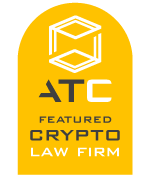
Ontario Securities Commission’s Takes Its First Crack at Regulating a Token Generation Event
Many of you may recall that in March 2017 the Ontario Securities Commission (“OSC”), on the coat tales of its American counterpart, released “Staff Notice 46-307 – Cryptocurrency Offerings” (the “Notice”). We discussed the possible effect of the Notice in a previous blog posting “In the Matter of Token Funder Inc.” decision released last month by the OSC is its first decision with respect to a voluntarily submitted token generation event (“TGE”), confirmed our suspicions that, despite politically drafted purple prose that ostensibly encourages innovation, the “fast-tracked” Regulatory Sandbox TGE securities process is in effect only a deferral process which seeks to encourage self-reporting on the presumption that TGEs are public offerings of securities under the securities laws and regulations.
Pursuant to “National Policy 11-203 – Process for Exemptive Relief Applications in Multiple Jurisdictions” (“NP 11-203”), the OSC granted exemptive relief from the dealer registration requirement in order to allow it to launch a TGE under the offering memorandum prospectus exemption. The exemptive relief granted by the OSC was, however, based on a number of important restrictions, most notably that the filer agree to apply to become a registrant following the TGE. The filer will also not be able to launch the platform prior to becoming a registrant, is required to conduct “Know Your Client” investigations and suitability review for each token purchaser with the rebuttable presumption that none of the participants will qualify as “eligible investors” or “accredited investors”, and is required to provide full and complete disclosure to prospective token buyers.
The filer in this case “was established for the purposes of creating a platform, known as the smart token asset management platform” in order to “facilitate third-party issuers raising capital through the offering of blockchain-based securities, including tokens and coins.” The platform also intended to provide token and coin management and governance services for issuers. The purpose of TGE was to fund the completion of the platform and to facilitate transfers of digital tokens pursuant to available prospectus exemptions.
In coming to its decision, the OSC relied on certain representations made by the filer; such as:
The OSC granted exemptive relief from the dealer registration requirement for a 12-month period, provided that the filer complies with the following conditions:
We take very little comfort in the OSCs proclamation that while the decision should not be viewed as a precedent for other applicants in the jurisdictions of Canada, it will endeavor to provide assistance to fintech startups to reduce the time and cost of getting innovative ideas to market. Instead, we read into this language as a harbinger of increased scrutiny and attempts to apply the public offering restrictions to those TGEs which may not even come close to satisfying the Pacific Coast Coin test (Pacific Coast Coin Exchange of Canada v. OSC, [1978] 2 SCR) explained in our previous blog.
If you are considering a TGE or ICO, please contact the lawyers at Grinhaus Law Firm so that we can assess the level of risk and compliance required, review your White Paper and ensure that you are on the right track.
PLEASE NOTE: THIS IS NOT INTENDED TO BE LEGAL ADVICE AND SHOULD NOT BE RELIED ON AS SUCH. IT IS IMPORTANT THAT YOU CONSULT WITH A LICENSED PROFESSIONAL.



